Books in the library are arranged by subject. You can browse them by subject on Levels 4 and 5.
Most books specifically on feminism, gender or women's studies are in the HQ range, which you can find on Level 4. However, many other parts of the library's collection cover the relation of women or gender to certain topics. For example, here are some call numbers you may find useful:
Of course, there are likely to be many relevant books outside these call ranges! Many books cover a topic as it relates to the role of gender, but are shelved with the other books on those subjects. For instances, you can find books about Japanese women writers among the books on Japanese literature.
Women and Gender Studies draws on research from many different fields -- history, sociology, psychology, cultural studies, art, literature, economics, and more. This means that lots of kinds of resources might be helpful for your research!
If you are focusing specifically on a field related to WGS, you might also want to check out some of the guides for those areas specifically. You can find some of them listed on the left side of this guide, or you can check the list of library guides for more.
On this guide, I'll provide some basic information about these interdisciplinary resources and some information about searching for articles and books on women, feminism, and gender specifically.
This guide was originally created by Nancy Foasberg and is currently maintained by Leila Walker.
You may find general resources like this especially helpful, since:
The resources listed here include material on many different subjects.
When searching OneSearch, you are likely to retrieve a very large number of results, especially if you are searching for a broad topic of high general interest. This might mean that your search includes some irrelevant results, or that it's just overwhelming. In such a case, I would recommend:
JSTOR provided expanded access during the pandemic (June 2020-June 2023). Expanded access expires on June 30, 2023. CUNY will reinstate that access beginning in January 2024.You may review the Electronic Resources Status Dashboard for updates. Questions? Email: access-support@qc-cuny.libanswers.com or Open a Ticket!
If your topic is a bit more specialized, it might make more sense to search more specialized resources. This has a few advantages:
Many library resources (especially OneSearch) use specific subject headings to describe their content. You can often find the content with regular keyword searching as well, but it is often helpful to be aware of subject headings, for two reasons:
The easiest way to find the best subject headings is usually to look at the subjects listed for the results of the works you've already found, but I'd like to provide some examples here. These examples are drawn from OneSearch; the catalogs may use different headings.
I'd like to point out the structure of these headings. A broad term like "Women" is further broken down into related topics ("Women--Political activity" is about political activity by women). In other cases, the terms may include an "and," as in "feminism and education." Note that where a specific country, ethnicity, sexual orientation, etc. is mentioned, you can usually substitute another one.
These are Library of Congress subject headings, meaning that they are sanctioned by a large institution. The Library of Congress's terminology might not be the terms that you (or I!) would prefer. However, to find things in a database or catalog, it's often necessary to use the words designated for that system. So, stay critical of these headings, but you might need to use a heading that doesn't match up with the language you'd usually use to find the books classified under it.
Of course, since some of the subjects I've suggested are very broad, you may also want to consider adding additional terms to narrow your results, or to search more specifically within a heading..
There are some other kinds of words that are usually good for subject searching:
